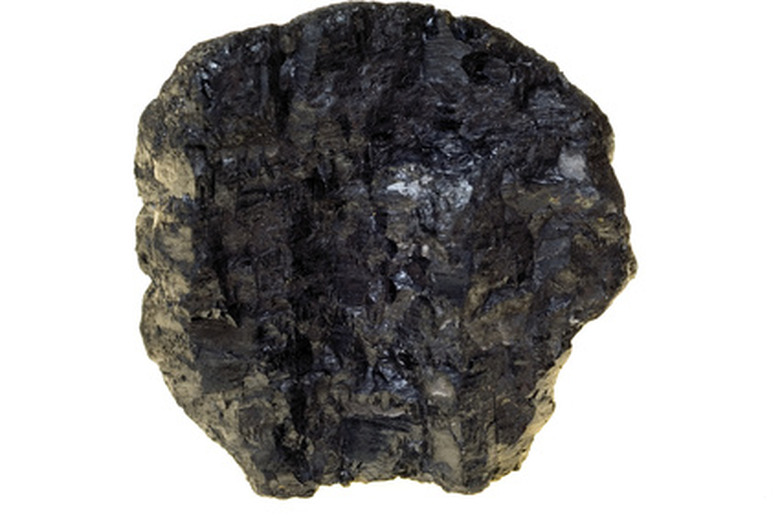Why Should We Conserve Fossil Fuels?
Unless you're reading this in a coffee shop in Iceland, Sweden or another country that has made a commitment to switch to renewable energy, the energy to power your laptop, the light allowing you to see the keyboard and the electricity to brew your coffee all come from fossil fuels. Fossil fuels include coal, petroleum products such as gasoline and oil, and natural gas. These fuels are burned in power stations to drive turbines that generate electricity. Car engines also burn fossil fuels, as do many home furnaces and water heaters.
Where Do Fossil Fuels Come From?
Where Do Fossil Fuels Come From?
Despite what you might have heard, fossil fuels don't come from decayed dinosaurs, although dinosaurs were roaming the Earth while they were forming. The main source of coal is decomposed plant matter, and oil comes from decayed plankton, a microscopic sea creature. Natural gas is also a by-product of decomposed plants and micro-organisms.
Even though the use of fossil fuels is increasing in many countries, coal, oil and gas are still abundant in the Earth's crust. Nevertheless, there is a growing awareness of the importance of the conservation of fuel sources among environmentalists and economic policy makers. This is true for two reasons: The supply of fossil fuels is finite, and the pollution from burning them is bad for the environment.
The Pros and Cons of Fossil Fuels
The Pros and Cons of Fossil Fuels
The economic importance of fossil fuels is well established. The systems for extracting and transporting them have already been developed, and the fossil fuel industry employs millions of workers around the world. The economies of most countries depend on it. Switching from fossil fuels to renewable energy sources is somewhat like changing the direction of a ocean liner, taking time and a large input of extra energy. It's much easier to keep the boat sailing on the same course.
On the minus side, fossil fuels are dirty. Burning them creates atmospheric pollutants, and scientists are in virtually unanimous agreement that one of the primary pollutants, carbon dioxide, is responsible for the climate change trend that is producing increasingly erratic weather patterns. Another drawback is that the supply of fossil fuels may seem unlimited, but it isn't. One petroleum executive estimated in 2006 that there was enough coal in the Earth's crust to last about 164 years, enough natural gas to last 70 years and only enough oil reserves for 40 years. At that rate, a person in their teens in 2018 is likely to live to see the day when oil and natural gas reserves run out.
Save Fuel for a Better Environment
Save Fuel for a Better Environment
The conservation of fuel through more energy-efficient technologies and practices may help extend the current reserves of petroleum, coal and gas for a few more years. Unless world economies begin to rely more on renewable resources, though, the supply will surely run out. However, there is a more important reason to conserve fossil fuels, and that's to help heal the environment.
Burning petroleum, coal and natural gas fills the air with harmful pollutants, including nitrogen oxides, sulfur dioxide, carbon dioxide, ozone and a host of hydrocarbons. Besides creating smog and respiratory diseases, these pollutants – particularly carbon dioxide – collect in the atmosphere and prevent the Earth's heat from escaping into space. As a result, scientists predict the Earth's temperature could increase by as much as 4 degrees Celsius by the end of the century. Besides this disastrous outcome, carbon dioxide also acidifies the oceans, killing sea creatures and reducing the ability of ocean water to absorb this harmful gas.
The conservation of fuel slows both the rate of atmospheric warming and ocean acidification, hopefully giving the Earth time to heal itself. Without this respite, the Earth may reach a tipping point beyond which that healing is impossible, and it may become uninhabitable. That is probably the most compelling reason to conserve fossil fuels.
Cite This Article
MLA
Deziel, Chris. "Why Should We Conserve Fossil Fuels?" sciencing.com, https://www.sciencing.com/about-6297325-should-conserve-fossil-fuels-/. 22 October 2018.
APA
Deziel, Chris. (2018, October 22). Why Should We Conserve Fossil Fuels?. sciencing.com. Retrieved from https://www.sciencing.com/about-6297325-should-conserve-fossil-fuels-/
Chicago
Deziel, Chris. Why Should We Conserve Fossil Fuels? last modified March 24, 2022. https://www.sciencing.com/about-6297325-should-conserve-fossil-fuels-/
